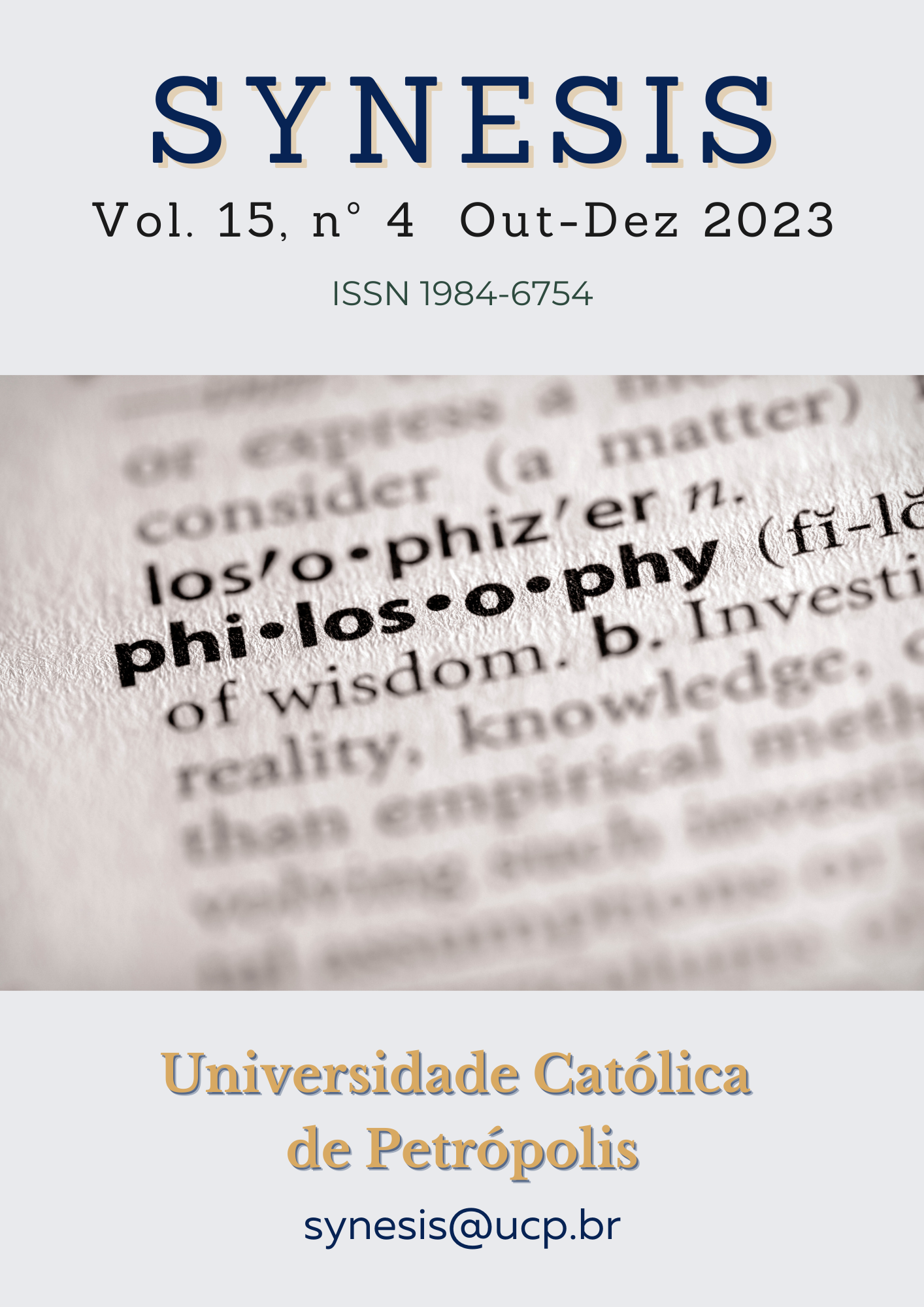Resumo
Os estudos sobre os padrões e métodos de transformação espiritual e moral na nova realidade da informação têm recebido atenção especial na literatura científica, que acumulou um corpo considerável de trabalhos sobre as questões sociofilosóficas da sociedade da informação. Para manter a estabilidade da esfera espiritual e moral dessa pessoa na sociedade da informação, este estudo tem como objetivo responder à pergunta sobre quais traços de personalidade um usuário da Internet possui em circunstâncias de troca de informações desenfreada e possíveis danos aos valores morais dos jovens. Esta pesquisa foi conduzida por meio de um estudo das teorias científicas atuais sobre as tendências de crescimento da sociedade da informação, a transformação do modo de vida humano em relação ao acesso à informação, à comunicação e à tecnologia da Internet, o impacto dessa transformação na condição espiritual e moral do sujeito da interação de informações, os mecanismos polideterminativos e os fatores de preservação das atitudes morais e dos significados da vida.
Referências
Altman, I. The Environment and Social Behavior. Privacy, Personal Space, Crowding. Monterey, CA: Brooks-Cole Publishing Co., 1975.
Bagautdinov, A. M. The Phenomenon of Spirituality in the Information Society. Ufa: Bashkir University, 2011. 230 p.
Baryshev, R. A.; Rumyantsev, M. V. Cyberspace as an exclusion zone. Bulletin of the Novosibirsk State University. Series Philosophy, n. 1, p. 36-44, 2008.
Biryukov, S. E. Spiritual sovereignty of the personality in the information society. History and Social Science, v. 8, p. 75-79, 2010.
Bonkalo, T.; Rybakova, A.; Shcheglova, A.; Knyazkova, E.; Bonkalo, S. Educational and psychological mechanisms of destructive influence of mass media on the formation of nationalistic attitudes in the youth environment. Espacios, v. 39, n. 23, p. 22, 2018.
Bonkalo, T. I. Psychological mechanisms of transformation of patriotism into nationalism: Statement of the problem. Human Capital, n. 5(65), p. 127-130, 2014.
Brushlinsky, A. V. Psychology of the Subject. St. Petersburg: Aleteyya, 2003. 272 p.
Chernyaeva, K. O. Cultural identification in social networks of the Internet. Bulletin of the Volga Academy of Public Administration, n. 1(22), p. 209-214, 2010.
Chudova, N. V. Features of the image of “I” “Inhabitant of the Internet”. Psychological Magazine, v. 22, n. 1, p. 113-117, 2002.
Dineikina, E. V. Spiritual and value orientations of downshifting in the context of the transformation of modern Russian society. Social and Humanitarian Knowledge, n. 5, p. 77-84, 2018.
Gorbunov, A. S. The problem of individual sovereignty in the society of mass communication. Bulletin of the Moscow State Regional University. Series: Philosophical Sciences, n. 1, p. 40-46, 2015.
Imomalievich, R. I. Synergetic interpretation of society development. International Engineering Journal for Research & Development, v. 5, n. 3, p. 5-15, 2020.
Ivanov, D. Society as virtual reality. In: Information Society. St. Petersburg: Petersburg Oriental Studies, 2004. p. 357-358
Lavrenchuk, E. A. Autopoisis of social communications. Bulletin of the Russian State University for the Humanities, n. 12, p. 48-57, 2009.
Masuda, Y. The Information Society as Postindustrial Society. Washington, D.C.: World Future Society, 1983.
Molchan, E. M. The influence of digitalization on the formation of spiritual and moral values of the subjects of interaction in the era of globalization. Bulletin of the Moscow State Regional University. Series: Philosophical Sciences, n. 2, p. 55-67, 2019. http://dx.doi.org/10.18384/2310-7227-2019-2-55-66
Mukhina, V. S. Personality: Myths and Reality: Alternative View, System Approach, Innovation Aspects. 5th ed., rev. and add. Moscow: Natsional'nyy knizhnyy tsentr, 2017.
Nartova-Bochaver, S. K. Sovereign Man: A Psychological Study of the Subject in His Being. St. Petersburg: Piter, 2008. 400 p.
Petrovsky, A. V.; Petrovsky, V. A. The individual and his need to be a person. Questions of Philosophy, n. 3, p. 44-53, 1982.
Ponarina, N. N.; Gubanova, M. A.; Rudykh, S. A. Spirituality of a person of the information society. Bulletin of the Armavir State Pedagogical University, n. 4, p. 145-151, 2021.
Pronin, V. V. The problem of spirituality in the information society. Bulletin of N. I. Lobachevsky Nizhny Novgorod State University, n. 1(2), p. 335–356, 2012.
Shapovalenko, A. A. The problem of security and protection of the virtual psychological space of the individual. Uchenye zapiski RGSU, n. 4, p. 141-146, 2014.
Sitkevich, N. V. Socio-philosophical aspects of ideological transformations in the information society. Bulletin of the Volga Region Academy of Public Administration, n. 2(23), p. 199-204, 2010.
Slobodchikov, V. I. Psychological problems of the formation of the inner world of a person. Questions of Psychology, n. 6, p. 14-22, 1986.
Valedinskaya, O. R.; Nartova-Bochaver, S. K. Personal space of a person and the possibilities of its “measurement”. Psychology of Maturity and Aging, n. 2, p. 66-77, 2002.
Wolfe, M. Childhood and privacy. In: Altman, I., Wohlwill, J. F. (Eds.) Children and the Environment. Human Behavior and Environment, vol. 3. Boston, MA: Springer, 1978. p. 175-222. https://doi.org/10.1007/978-1-4684-3405-7_6

Este trabalho está licenciado sob uma licença Creative Commons Attribution-NonCommercial-NoDerivatives 4.0 International License.
Copyright (c) 2023 Synesis (ISSN 1984-6754)

